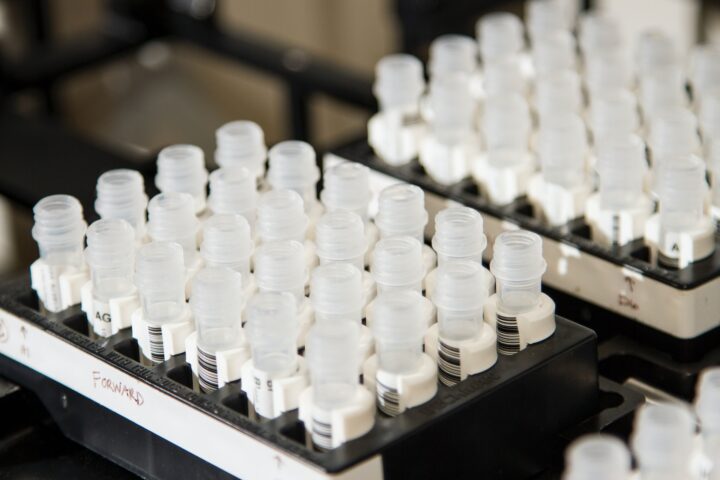The Ultimate Guide to Preparing for Drug and Alcohol Testing at Your New Job
Starting a new job can be both exciting and nerve-wracking. You’ve aced the interviews, signed the paperwork, and are ready to embark on a new journey. But before you get too comfortable in your new workspace, there’s one crucial step you should prepare for – drug and alcohol testing.
Let’s walk you through everything you need to know to prepare for drug and alcohol testing at your new job, from understanding the reasons behind it to practical tips on how to pass with flying colors.

Why Drug and Alcohol Testing?
Ensuring Workplace Safety: The primary goal of drug and alcohol testing is to create a safe working environment for everyone. Substances like drugs and alcohol can impair your judgment and reaction time, posing significant risks in jobs that require precision or involve heavy machinery.
Maintaining Productivity: Employers want to make sure that their employees are productive and not under the influence of substances that can hinder their performance. Substance abuse can lead to absenteeism, accidents, and a decrease in overall productivity.
Compliance with the Law: In some industries, drug and alcohol testing is not just a choice but a legal requirement. Compliance with these regulations is crucial for both employees and employers.
Now that we understand why drug and alcohol testing is essential, let’s delve into how you can prepare effectively.
Preparing for Your Drug and Alcohol Test
1. Familiarize Yourself with Company Policies
Tip: Start by reviewing your company’s employee handbook or policies. Understanding your employer’s stance on drug and alcohol use is the first step in preparing for your test. If you’re a commercial driver or transportation professional, check out SAP program DOT to ensure you’re not having any trouble.
2. Know the Testing Methods
Drug and alcohol tests can take various forms, including:
- Urine Test: This is the most common method and can detect a wide range of substances.
- Saliva Test: Typically used for detecting recent drug use.
- Hair Follicle Test: Offers a longer detection window.
- Breathalyzer Test: Used for alcohol testing and measures blood alcohol content (BAC).
- Blood Test: Less common but can provide accurate results.
Knowing which method your employer uses will help you tailor your preparation accordingly.
3. Avoid Unnecessary Risks
Tip: In the days leading up to your test, avoid exposure to secondhand smoke, and be cautious about consuming any over-the-counter medications or herbal supplements that could trigger a positive result. You can also head to Detox Stuff for detox drinks to clear out your system just to be safe.
4. Stay Hydrated
Drinking plenty of water can help dilute the concentration of substances in your urine. However, don’t overdo it, as an overly diluted sample might raise suspicions.
5. Get Plenty of Rest
A well-rested body is better equipped to metabolize substances. Ensure you get a good night’s sleep before your test.
6. Know Your Rights
Familiarize yourself with your legal rights regarding drug and alcohol testing. This knowledge can help you navigate the process with confidence.
7. Plan Your Timing
Tip: Schedule your test for a time when you’re least likely to have consumed substances that could trigger a positive result. This might mean delaying your test if necessary.
On the Day of Your Test
1. Dress Comfortably
Wear comfortable clothing that allows easy access to your arm for a blood test or your mouth for a saliva test.
2. Bring Necessary Documentation
Have all the required identification and documentation with you. This might include your driver’s license or employee ID.
3. Stay Calm and Relaxed
Nervousness can affect the test results. Take deep breaths, and try to stay as calm and relaxed as possible.
During the Test
1. Follow Instructions
Listen carefully to the instructions provided by the testing facility staff. Follow their guidance to ensure a smooth process.
2. Provide a Sample
For urine, saliva, or blood tests, you’ll be asked to provide a sample. Make sure to do so as instructed.
3. For Breathalyzer Tests
If you’re taking an alcohol test with a breathalyzer, make sure to follow the technician’s instructions precisely. Take deep breaths and blow steadily into the device.
4. Ask Questions if Needed
Don’t hesitate to ask questions if you’re unsure about any part of the process. It’s better to seek clarification than to make mistakes.
After the Test
1. Follow Up
Once the test is complete, inquire about the next steps. Will you be informed of the results, or will your employer receive them directly?
2. Keep Records
Maintain a copy of all documents related to your drug and alcohol test. This can be useful for future reference.
3. Prepare for Possible Follow-Up
In some cases, if your initial test shows questionable results, you may be asked to take a follow-up test. Be prepared for this possibility and continue to follow any company policies regarding substance use.
What If You Test Positive?
Testing positive for drugs or alcohol can have serious consequences for your job. If this happens:
- Stay Calm: Don’t panic. Take a deep breath and consider your next steps carefully.
- Understand Your Rights: You have the right to discuss the results with your employer and seek clarification.
- Seek Help: If you have a substance abuse issue, consider seeking help from a professional. Many employers offer employee assistance programs that can provide support and resources.
- Legal Counsel: If your job is at risk, consider consulting with legal counsel to understand your options.
Conclusion
Preparing for drug and alcohol testing at your new job doesn’t have to be stressful. Embrace the opportunity to start your new job with a clear mind and a commitment to a substance-free workplace. Good luck!


